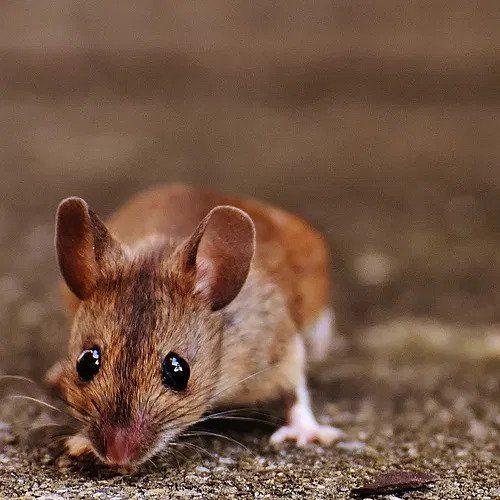Navigating the winter months can be tough for homeowners and gardeners alike, particularly with the increased activity of pests such as rats and mice.
These rodents are not only attracted to the warmth of our homes but also to our gardens, causing potential harm to plants and structures.
However, there are several steps you can take to safeguard your garden from these pests during the winter season, including enlisting the help of professional pest control services.
Eliminating Food Sources
Eliminating food sources is a key strategy in deterring rodents from your garden.
Start by securing your rubbish bins; this can be done by using bins with tight-fitting lids and, where possible, storing them inside a secure bin store or shed.
Compost heaps, a veritable buffet for rodents, should be contained within a closed unit and regularly turned to discourage nesting.
Bird feeders can be fitted with trays to catch any dropped seed, and any leftover food should be removed at the end of each day.
Fallen fruits from trees should be regularly collected and disposed of properly.
By thoroughly managing these potential food sources, you can create an environment that is far less appealing to pests, reducing the likelihood of a winter rodent infestation.
Removing Shelter
Another attraction for rodents in your garden is shelter.
Sheds, garages, and even piles of wood or compost can provide the perfect refuge for these pests. Maintaining cleanliness and order in your garden is crucial.
Sheds and garages should be kept clean and clutter-free, and any gaps or holes in the walls, doors, or windows should be sealed.
Similarly, piles of wood should be neatly stacked and regularly checked for signs of nesting.
By removing these potential shelters, you can make your garden less inviting to rodents, further reducing the risk of infestation.
Removing Clutter
Eliminating clutter is an effective measure to dissuade rodents from your garden. Rodents can use clutter such as garden debris, overgrown shrubs, or unused equipment as nesting material or shelter.
Maintaining a clean and tidy garden by removing fallen leaves, cutting back overgrown greenery, and eliminating debris can deter rodents as these often provide shelter for them.
Regularly pruning your garden, clearing out old plant material, and removing unused items can make your garden less appealing for rodents.
In the instance of woodpiles, ensure they are neatly stacked and placed at a distance from your home.
If you store firewood in your garden, ensure it’s not placed directly next to your house, as this can inadvertently offer an easy entry point for rodents into your home. It’s advisable to move the woodpile further away and maintain it as neatly as possible.
The aim is to keep your garden as inhospitable as possible for pests, deterring them from taking up residence during the colder months.
Natural Rodent Repellents
Natural repellents can also serve as a useful tool to keep rodents at bay.
There are several natural repellents that can discourage rodents from invading your garden.
Rodents tend to dislike strong scents, and plants like lavender, rosemary, and marigolds are known to repel rodents due to their strong odours.
Planting these around the perimeter of your garden can act as a natural barrier.
Peppermint oil is another strong-smelling substance that rodents dislike. Placing cotton balls soaked with peppermint oil around your garden can help keep these pests at bay.
Another option is to sprinkle crushed chilli pepper, or spray a homemade mixture of chilli pepper and water around your garden. The strong smell and taste are unpleasant to rodents, deterring them from the area.
Remember to reapply these natural repellents after rain for maximum effectiveness. It’s worth noting that while these natural methods can be effective, they are best used in conjunction with other preventative measures, such as securing food and shelter sources, for a comprehensive rodent control strategy.
Creating Physical Barriers
Physical barriers can be a very effective way of preventing rodents from invading your garden.
This could include installing a metal mesh or hardware cloth around the perimeter of your garden. The mesh should be fine enough to prevent rodents from squeezing through, and it’s advisable to extend it a few inches below ground to deter burrowers.
In addition to perimeter fencing, you can also use wire cloches or row covers to protect individual plants or vegetable rows from rodents.
Netting can also be used to protect fruit trees or bushes from aerial invaders such as birds.
Another option is to install solid fences or walls around compost heaps or bins to deny rodents access to these potential food sources.
The key is to make your garden less accessible and attractive to rodents, thereby reducing the chances of infestation.
Professional Services
Pest control professionals can be invaluable in helping manage rodent prevention during the colder months. They possess the expertise to identify potential entry points and gauge the severity of an infestation.
Professionals, such as us here at The Pest Master, can offer bespoke solutions such as trapping, bait stations, or sealing entry points. Regular inspections and maintenance by experts can help ensure your garden and home stay rodent-free throughout winter.
We can also offer advice on how to prevent future infestations and make your garden less appealing to rodents.
Contact us today for more information.


